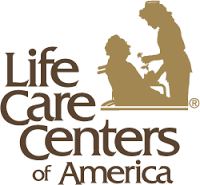The U.S. Department of Health and Human Services, Office of the Inspector General, released a report this month, which concluded that many incidents of abuse and neglect at nursing homes are not always reported or investigated. The Inspector General determined that almost one out of five incidents in which a Medicare beneficiary was taken from a nursing home to a hospital emergency room was the result of abuse or neglect. The study found that skilled nursing facilities failed to report a large number of these incidents to the appropriate government agencies in accordance with applicable federal regulations. It was estimated that in 2016, approximately 6,600 cases of potential abuse and neglect went unreported.
The report cited a case involving a 65 year old nursing home resident, who was taken to the emergency room in critical condition. She was having difficulty breathing, her kidneys were failing, and she was delirious. The lab results done at the hospital showed that she was suffering from opioid poisoning, because of a serious error that had occurred at the nursing home. One of the nurses at the nursing home had mistakenly copied a doctor’s orders. As a result, the nursing home resident received much larger doses of pain medication than had been prescribed, causing opioid poisoning. The resident was treated and released back to the nursing home. The nurse who had made the mistake received some training, but the nursing home never reported the incident. The Inspector General cited this case as a clear example of negligence that should have been reported to the government.
Suthers & Harper in Savannah, Georgia was one of the first firms in the nation to sue a nursing home for abuse and neglect, and obtain a successful jury verdict. The firm’s founder and managing partner, John Suthers, said, “The results of this study are not surprising. Incidents of abuse and neglect of elderly nursing home residents can be difficult to uncover for many reasons. Sometimes, the victims may be afraid or unable to tell family members out of fear of retaliation by the nursing home. In other cases, the evidence of abuse or neglect can be masked by the resident’s other medical problems. Sadly, there are residents who do not have family members regularly checking on them and as a result, incidents of abuse or neglect go unnoticed and unreported.” Mr. Suthers encourages family members of nursing home residents to visit the nursing home frequently and at different times during the day. Doing so makes it more difficult for the nurses and staff to predict when a family member may drop by the nursing home. As a result, they may be more diligent in caring for that family’s loved one.
 Georgia Injury Lawyer Blog
Georgia Injury Lawyer Blog



